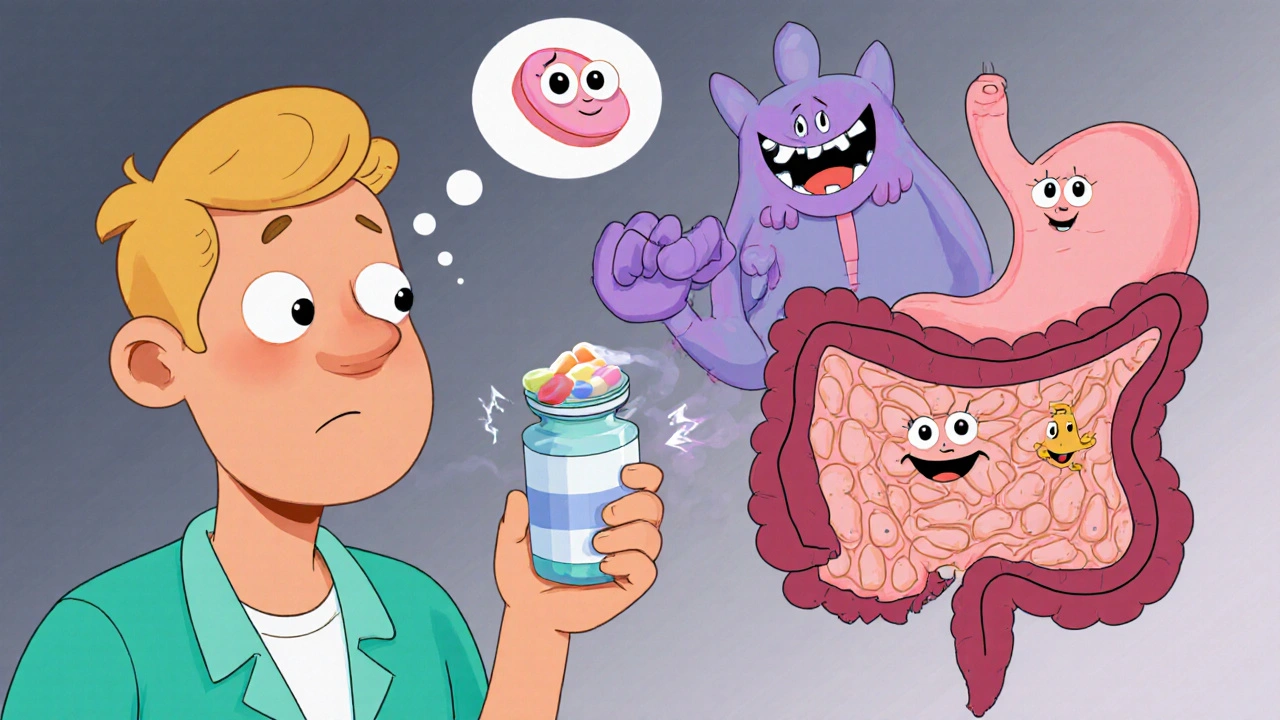Drug Allergy: Symptoms, Triggers, and What to Do When Your Body Reacts
When your body sees a medication as a threat, it can launch a full-scale immune response—that’s a drug allergy, an immune system reaction to a medication that can range from mild rash to life-threatening anaphylaxis. It’s not just a side effect or an upset stomach—it’s your body mistaking a drug for a virus or bacteria and attacking it. Many people confuse drug allergies with side effects, but they’re completely different. Side effects are predictable and common, like drowsiness from antihistamines. A drug allergy? That’s your immune system sounding the alarm.
Some of the most common triggers include penicillin, a widely prescribed antibiotic that causes allergic reactions in up to 10% of people, sulfa drugs, used for infections and sometimes in diabetes or diuretics, and NSAIDs, like ibuprofen and aspirin, which can trigger reactions even without true allergy. Even common pain relievers like acetaminophen can cause reactions in rare cases. If you’ve ever broken out in hives after taking a pill, felt your throat close up, or had trouble breathing after a shot, you’ve likely experienced a drug allergy—or a severe intolerance that needs the same caution.
It’s not just about avoiding the drug. Knowing your history matters for future treatments. If you’re allergic to penicillin, you might be told to avoid all antibiotics—but that’s not always true. Many people outgrow penicillin allergies, and testing can confirm if you’re still at risk. Also, some reactions are cross-reactive: if you react to one drug in a class, you might react to others. That’s why knowing the exact drug and reaction type helps doctors pick safer alternatives. People with drug allergies are also more likely to have reactions to other substances, like latex or food additives, so your medical history should include all of it.
What you do after a reaction changes everything. Did you get a rash? That’s usually mild. But if your lips swelled, your chest tightened, or you felt dizzy, that’s an emergency. Anaphylaxis can kill in minutes. If you’ve had a serious reaction before, carrying an epinephrine auto-injector isn’t optional—it’s lifesaving. And don’t assume you’re safe just because you’ve taken a drug before. Allergies can show up out of nowhere, even after years of use.
There’s a lot of confusion out there. Some people say they’re allergic to penicillin because they got a stomach ache once. Others avoid all antibiotics because a cousin had a rash. But real drug allergies are serious, and mislabeling them can lead to worse outcomes—like being given a stronger, more toxic drug because the safe one was ruled out. That’s why accurate diagnosis matters. Skin tests and blood tests can help confirm what’s real and what’s not.
Below, you’ll find real-world stories and clear guides from people who’ve dealt with drug allergies firsthand. You’ll learn which medications are most likely to cause trouble, how to tell if it’s truly an allergy or just a side effect, what to do if you react, and how to talk to your doctor so you’re not stuck with risky alternatives. This isn’t just theory—it’s what keeps people alive.
How to Tell a Side Effect from a True Drug Allergy
Learn how to tell the difference between a drug side effect and a true allergy. Most reactions aren't allergies - mislabeling them can limit treatment options and increase health risks.
Keep Reading
